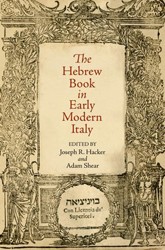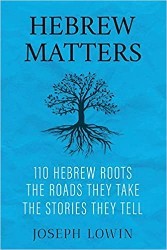Lewis Glinert, professor of Hebrew Studies at Dartmouth College, is widely acknowledged as one of the most prolific scholars of the Hebrew language. His books on Hebrew range widely from the popular The Joys of Hebrew to his collection of scholarly essays Hebrew in Ashkenaz. In his newest book, Glinert, a talented storyteller, writes a modern, even colloquial, history of Hebrew, recounting the language’s flourishing and what he sees as its inevitable decline over several centuries.
Glinert attributes much of Hebrew’s decline to the scorn of Hebrew grammar by pious Ashkenazi Jews. Although he doesn’t say so outright, many yeshiva students today, woefully ignorant of Hebrew grammar, like to cite the indifference to Hebrew grammar of their revered rebbes as proof that knowledge of the ways that Hebrew works is not necessary for understanding classical Hebrew texts. And yet, even today, halakhik responsa written by anti-Zionist rabbis of the Eda ha-haredit in Israel often present models of perfect grammar and graceful Hebrew prose.
Glinert possesses a veritable mine of Hebraic anecdotes. He notes several charming errors committed by Renaissance scholars who wanted so dearly to see Hebrew as the original language, created during the seven days of creation — “Let there be Hebrew” — that they saw etymological similarities between Hebrew and certain European languages where there were none and forced them through the sieve of religious belief.
Glinert distinguishes between Christian knowledge of Hebrew — “Hebrew de-Judaized” — and Jewish knowledge of Hebrew. Among Glinert’s discussions of various Christian translations of the Hebrew Bible, Glinert dilates at some length on the 1530 translation of the Pentateuch into English by William Tyndale, paying particular attention to Tyndale’s efforts to inject and reflect a Hebraic note into the English syntax. Glinert writes about Tyndale:
Tyndale wished to forge a Hebraic consciousness, unlike so many twentieth-century translators trying to make readers forget they are reading a translation. The result was English that was at times even more “crude” than Renaissance English was generally thought to be. But Tyndale was not willing to sell his English birthright for a mess of Roman rhetoric.
This Hebraizing of his translation, adds Glinert, led to Tyndale’s murder in Belgium by the English regime in 1536. Of course, it also led to the King James Bible in 1611.
Taking us to the dawn of modernity, Glinert attributes to Hasidism the first “seeds” of Hebrew’s revival. Even though the Hasidic masters orated in Yiddish, their oral pronouncements were transcribed in Hebrew. He quotes one scholar who describes this situation as “elevating the status of Yiddish while at the same time revitalizing Hebrew.” Among Glinert’s many titillating tidbits is that Rabbi Nachman of Bratslav published his famous “Tales” in a bilingual Yiddish-Hebrew edition.
In the final two chapters of the book Glinert moves into the eighteenth century to focus on the Hasidim and the maskilim (of the Jewish Enlightenment), and into the twentieth century with the role of Hebrew in the founding of the Jewish State.
While acknowledging the enormous accomplishment of the revival of Hebrew today, Glinert strikes several pessimistic notes in his concluding chapters. His conclusions leave us with food for thought: “The Hebrew State is in many ways a triumphant stage in the story of Hebrew. But it is not the final word on the state of Hebrew.” Unable to let go of the idea of the dynamic quality of Hebrew as a living language, Glinert takes it up again in the epilogue: “History has sprung some big surprises on this ancient linguistic brand, and one can be confident that history is far from done with it.” Optimistically enough, that history involves the future of the Hebrew language.




